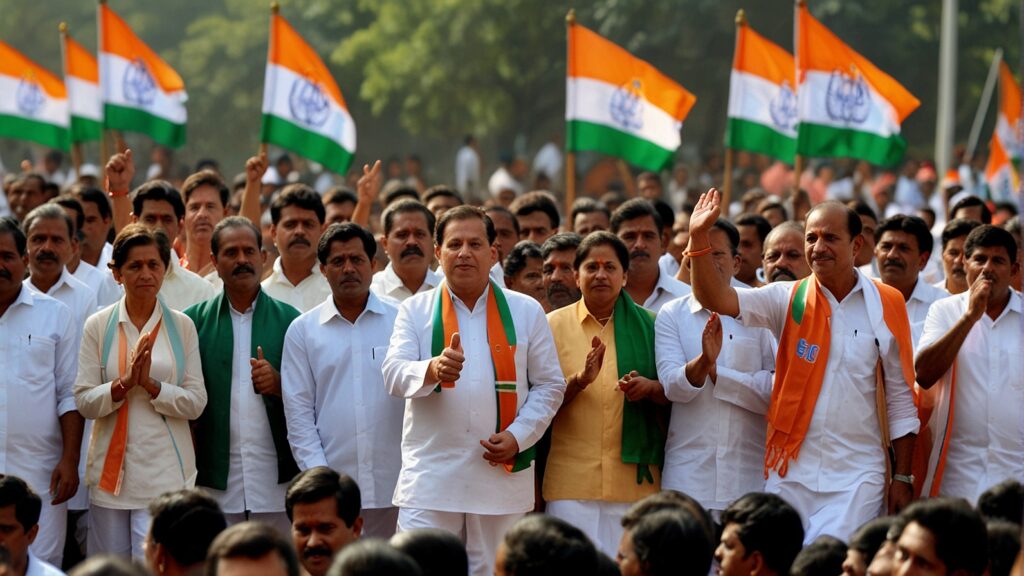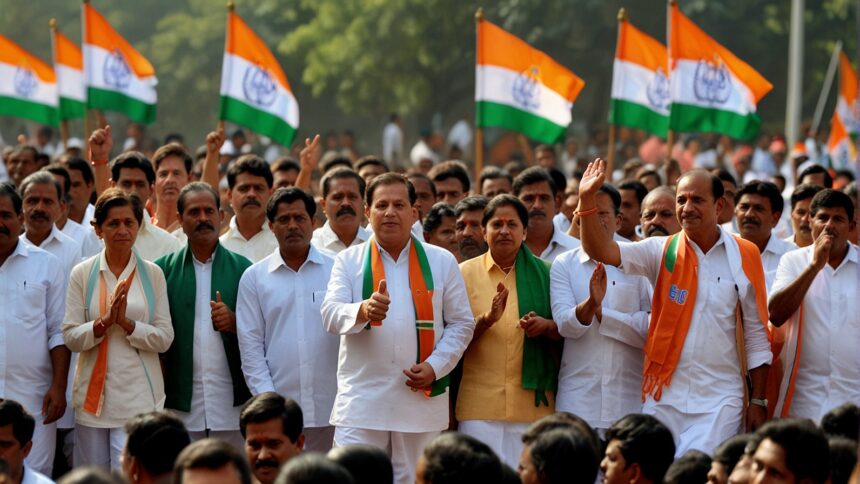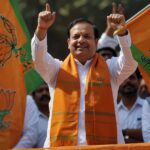
1. Overview of the current state of political party congress
As the upcoming election season approaches, it’s becoming increasingly clear that the role of political party congresses is evolving. The Congress Party, one of India’s oldest political parties, has been facing challenges in recent years, leading many to question its future relevance and impact on the political landscape. With the changing political climate and the rise of new political movements, can the Congress Party make a comeback through its party congresses? In this blog, we will explore the future of political party congresses and the potential strategies that the Congress Party can implement to stay competitive in the upcoming election.
2. Factors contributing to the decline of political party congress
Several factors have contributed to the decline in the effectiveness of political party congresses. One prominent issue is the diminishing trust in traditional party structures and processes among the electorate. Additionally, the rise of social media and digital campaigning has shifted the focus from in-person party congresses to online engagement and outreach strategies. Furthermore, internal divisions within political parties have often overshadowed the unity and purpose that party congresses aim to foster. As we delve deeper into the future of political party congresses, analyzing these factors will be crucial in understanding how parties like the Congress Party can adapt and revitalize their traditional congresses to remain relevant in today’s political landscape.
3. The potential for a resurgence in political party congress
lies in the ability of political parties to address the evolving needs and expectations of the electorate. By leveraging technology to enhance transparency and inclusivity in decision-making processes, parties can rebuild trust among their members and the general public. Furthermore, emphasizing unity and common goals over internal divisions can rejuvenate the sense of purpose that party congresses are meant to instill. As the political landscape continues to evolve, parties like the Congress Party have the opportunity to leverage their historical significance and adaptability to make a comeback through revitalized and relevant party congresses.
4. Strategies for revitalizing political party congress
To revitalize political party congresses, parties must prioritize modernization and adaptability. Embracing digital platforms for member engagement, feedback collection, and decision-making processes can enhance transparency and inclusivity. Establishing clear goals and fostering unity among diverse factions within the party can reignite the sense of purpose that drives party congresses. Training party members on effective communication and collaboration techniques can improve internal cohesion and productivity. Lastly, parties should actively seek feedback from the electorate to ensure their congresses address relevant issues and resonate with the public. By implementing these strategies, political parties can breathe new life into their congresses and strengthen their connection with voters.
5. The role of technology and social media in modernizing political party congress
In an era where information travels at the speed of light, leveraging technology and social media is crucial for the revitalization of political party congresses. By harnessing digital platforms for member engagement, parties can foster a more inclusive and participatory environment. Social media offers a powerful tool for reaching a wider audience, generating feedback, and mobilizing support for party initiatives. Embracing these technological advancements can not only streamline decision-making processes but also enhance transparency and accountability within party structures. As political landscapes evolve, parties must adapt to the digital age to stay relevant and connected with voters.
6. The importance of inclusivity and diversity in political party congress
In addition to embracing technology, political party congresses must prioritize inclusivity and diversity to ensure a representative and reflective decision-making process. By actively promoting diverse voices and perspectives within their ranks, parties can better address the needs and concerns of a broader range of constituents. Inclusivity fosters a sense of belonging and strengthens party unity, ultimately enhancing the party’s credibility and appeal to a more diverse voter base. As the political landscape continues to evolve, parties that prioritize inclusivity and diversity will be better positioned to navigate complex challenges and resonate with an increasingly diverse electorate. Stay tuned for more insights on revitalizing political party congresses in the digital age.
7. Conclusion: The future of political party congress and its impact on the political landscape.
7. Conclusion: The Future of Political Party Congress and Its Impact on the Political Landscape
As political parties adapt to the digital age, embracing inclusivity, diversity, and technology will be crucial for their survival and relevance. By prioritizing diverse voices and perspectives, parties can address the needs of a more varied electorate, thereby enhancing their credibility and broadening their appeal. The successful revitalization of political party congresses will not only strengthen party unity but also play a significant role in shaping the political landscape. In the ever-evolving political arena, parties that embrace inclusivity and innovation will be better equipped to navigate challenges and connect with a diverse voter base. The future of political party congress holds the key to shaping a more representative, responsive, and inclusive democracy. Stay engaged for further updates on this important topic.








